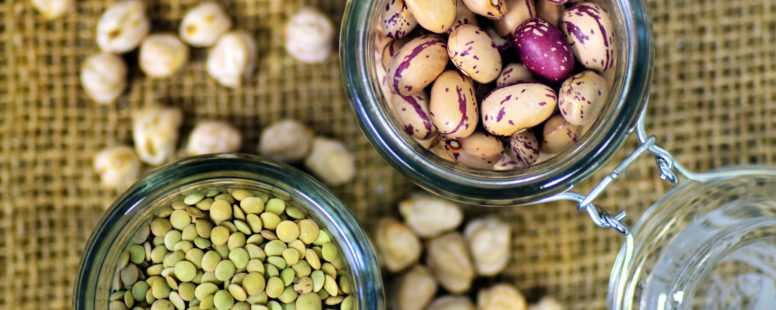All About Lectins
Lectins are a class of proteins that bind to carbohydrates. They bind on cell membranes thus enabling molecules to stick together without the involvement of the immune system. The proteins are mainly found in raw grains and legumes. While they are commonly associated with the cotyledon, part of the seed that becomes leaves, they are also present in the seed coat. Besides, the cell membrane binding proteins are also found in vegetables and dairy products. For a long period, lectins amount was standard in different foods. However, genetic manipulations of plants have led to a significant difference of lectins amount in plants. lectins act as a defense mechanism in plants against insects and micro-organisms. One of the seed dispersal methods is through animal excretion. lectins resistance to digestion enables the process by maintaining the seed intact through an animal’s digestive system. The proteins are also essential for cell growth, body fat regulation, and cell death. lectins also stimulate immune system response.
On the other hand, Lectins are associated with various health complications. These include; inflammation, digestive stress, chronic fatigue, brain fog, and skin irritations. While the sugar binding characteristic of Lectins enables efficient cell-cell interaction, they can also interrupt communication between cells hence cases of inflammation and toxic reactions. The proteins are also considered to be anti-nutrients because of their ability to bind to sugar and other carbohydrate molecules. However, effects are more profound in their resistance to human digestion. The proteins are associated with abnormal absorption of minerals, vitamins, and vital proteins. Besides, lectins attach themselves to the intestinal wall. Clinging to the gastrointestinal tract exposes human beings to greater risks especially if an individual’s intestinal lining is not healthy. A permeable lining allows entry of food particles including lectins. Presence of Lectins in the bloodstream can lead to inflammatory reactions as well as the production of antibodies to Lectin. Sometimes they are associated with diarrhea, nausea, bloating, and other allergic reactions.
However, other health professionals believe Lectins are not as harmful as dictated. The only concern on consumption of foods high in lectins is that people do not fully benefit from the nutrients. They could only be as harmful and active when consumed in isolation and high levels like in laboratory experiments. While there are evident allergic reactions to their consumption like in Latex, ingesting the proteins in low concentration in cooked food has negligible health problems. Cooking reduces Lectins concentration in foods. Thus, vegetarians should consider reducing consumption of raw vegetables and legumes.
In fact, Lectins have some health benefits. According to recent research on microbial sciences, Lectins, especially in legumes, have anticancer activities and antimicrobial features. In the research, scientists pointed out that oral administration of MASL, a particular plant with Lectin prevents and cures oral cancer. In addition to this, consumption of lentils, peas, and beans rich in lentils improves blood pressure, blood lipid levels as well as inflammatory markers. Beans, lentils, and peas are also rich in fiber that can help people with diabetes in regulating blood sugar levels.
Whether to avoid them or not is debatable. Allergies and sensitivities to food vary from one person to another and are caused by natural compounds in food as well as individual digestive tracts. Some people are allergic to lectins the same way some are allergic to any other food. Therefore, sensitivities and allergies should not rule out any food as toxic. Autoimmune conditions and chronic digestion problems can be as a result of various factors. It is important to consult with a physician before jumping to conclusions on consumption of lectins. In some cases, physicians advise affected patients to remove them from their diet mainly because of their genetic makeup that is sensitive to lectin.
A healthy person with no digestion complications or allergic reactions but uncertain on lectin sensitivity should consider a short-term diet test. Eliminate beans, tomatoes, legumes, potatoes, grains, and eggplant for few weeks then reintroduce one at a time and monitor any reactions. This is a simple way to know whether or not you are safe from lectin sensitivity. However, it is important to soak raw beans before cooking. Legumes should also be thoroughly cooked before consumption to reduce the concentration level of Lectins. Below are a few foods you can eat and should try to avoid.
- Leafy, green veggies
- Cooked sweet potatoes
- Mushrooms
- Avocado
- Celery
- Asparagus
- A2 Milk
- Broccoli
- Brussel Sprouts
- Pasture-raised meats
- Squash
- Eggplant
- Peppers
- Grains
- Potatoes
- Legums (beans, lentils, peas and peanuts)
- Fruit – unless in modertation
- Tomatoes

